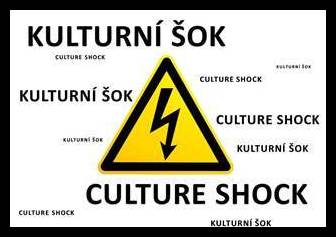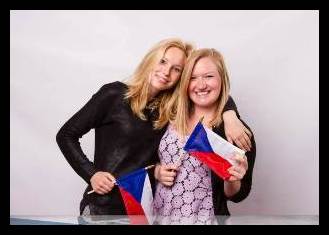- 2020 (16)
- July (3)
- June (1)
- March (3)
- February (5)
- January (4)
- 2019 (10)
- December (1)
- November (1)
- October (3)
- September (1)
- August (4)
- 2018 (2)
- March (1)
- February (1)
- 2017 (8)
- October (1)
- September (2)
- July (1)
- June (1)
- May (1)
- April (1)
- March (1)
- 2016 (4)
- November (1)
- June (1)
- February (1)
- January (1)
- 2015 (5)
- December (2)
- May (1)
- March (1)
- February (1)
- 2014 (10)
- November (1)
- September (1)
- August (1)
- May (1)
- April (2)
- February (2)
- January (2)
- 2013 (12)
- December (1)
- November (2)
- October (1)
- September (1)
- May (3)
- March (2)
- February (2)
- 2012 (22)
- December (2)
- November (1)
- October (3)
- August (2)
- July (1)
- May (2)
- April (2)
- March (3)
- February (2)
- January (4)
- 2011 (32)
- December (1)
- November (4)
- October (4)
- September (2)
- August (3)
- July (2)
- June (4)
- May (4)
- April (3)
- March (5)
- 2010 (3)
- December (3)
Articles
Riding the Waves of Culture Shock
It may seem like "culture shock" has become an outdated term. For better or for worse, you can now find your favorite chain restaurant or coffee shop in practically any city, from Prague to Pyongyang. And with today’s technology, any city clear across the globe can be accessed easily, right down to Google street view. But once on the ground in a new place, once a student is actually walking its streets and interacting with its people, what does culture shock actually look like?
It’s not all homesickness and survival care packages. Some study abroad students will be leaving the U.S. for the first time when they set off for a semester in Prague. They can expect to go through the normal stages of culture shock, which include the honeymoon stage, struggle, acceptance, and finally adaptation. For some real insight into what Czech integration feels like, we spoke to a few recent UPCES study abroad students.
 First impressions speak volumes, and we were happy to hear about and reflect on what struck certain students during their first days in the Czech capital. Paige Bashian, a Fall 2014 semester student hailing from the University of Richmond, says that the first cultural difference she noticed in Prague was that people seem enjoy their time together more. She observed them taking their time over leisurely meals and never rushing to pay the check. What she also admires about the locals is the way they tend to take in their surroundings as they walk through the city, rather than burying their attention in their phone or iPod. “But Praguers don’t necessarily interact with strangers. They really keep to themselves,” she adds.
First impressions speak volumes, and we were happy to hear about and reflect on what struck certain students during their first days in the Czech capital. Paige Bashian, a Fall 2014 semester student hailing from the University of Richmond, says that the first cultural difference she noticed in Prague was that people seem enjoy their time together more. She observed them taking their time over leisurely meals and never rushing to pay the check. What she also admires about the locals is the way they tend to take in their surroundings as they walk through the city, rather than burying their attention in their phone or iPod. “But Praguers don’t necessarily interact with strangers. They really keep to themselves,” she adds.
It's true that things like small talk in line at the grocery store or a smile in the street for no reason are unlikely to happen in the Czech Republic. But once you get to know a few Czechs, you’ll see what true and dedicated friends they can be. Jesse Ostroff, a study abroad student from the University of Michigan, agrees about the general shyness of the Czech people. Luckily, he hit it off immediately with the Czech buddy he was assigned through the UPCES Czech Partner Program. The two are well-matched indeed, both being world travelers and sharing a love of linguistics. This positive experience encouraged Jesse to get to know more Czech locals and to integrate as much as possible during his time abroad.

Lauren Thatcher, also from the University of Michigan, praises the Czech partner program as an excellent way to dive in to the Czech culture. “I can’t imagine why anyone wouldn't want to be matched up with a Czech buddy," she says. They show you all the good local spots and take you to unique cafes….who wants to go to Starbucks when you’re in Europe? The point of study abroad is to immerse yourself as much as possible.”
Of course, life back home will be on a student's mind a lot, even as the 12 weeks of a semester abroad rush by. When asked what she missed most about home, Paige says the convenience of knowing where to find anything, from everyday objects to ingredients for dinner. It can be surprisingly hard to pull a meal together until one gets a feel for the Czech supermarkets.
But you can be sure that the missing game goes both ways. Upon returning home many students, like Paige, miss the beauty of the city most of all. “Prague is a wonderfully unique city – not overwhelming, very manageable, completely walkable, and with such a special atmosphere.”
Students, remember that your time abroad will fly by. Take advantage of every opportunity to embrace the newness, the eccentricities, and even the quirky flaws of your temporary home. Some days may be harder than others, and occasional frustration may drag you down from time to time. But you are here to be challenged; and the greater the challenge, the greater the reward!







